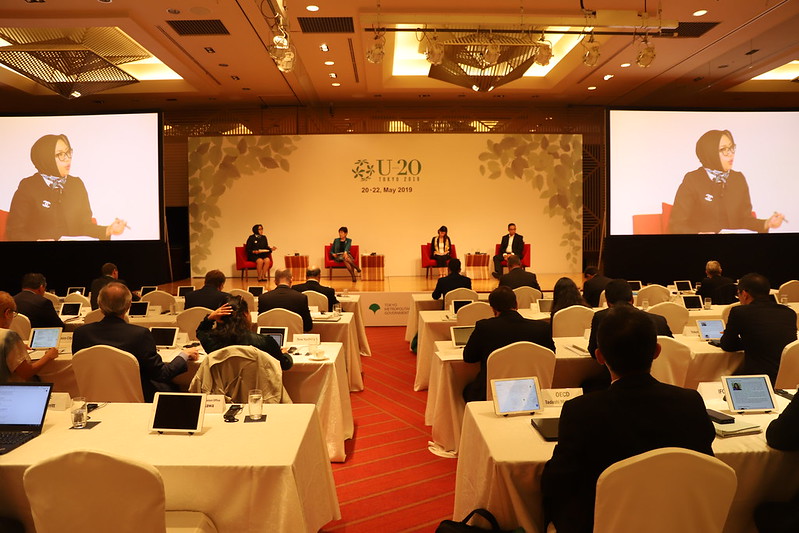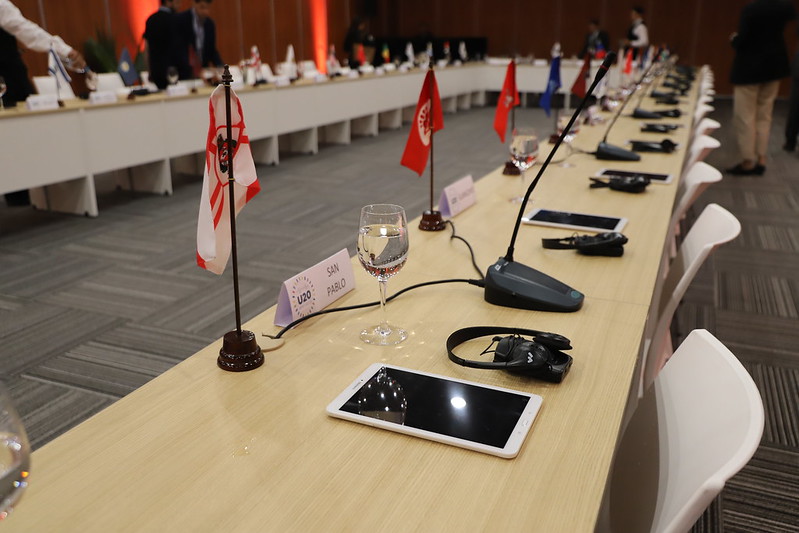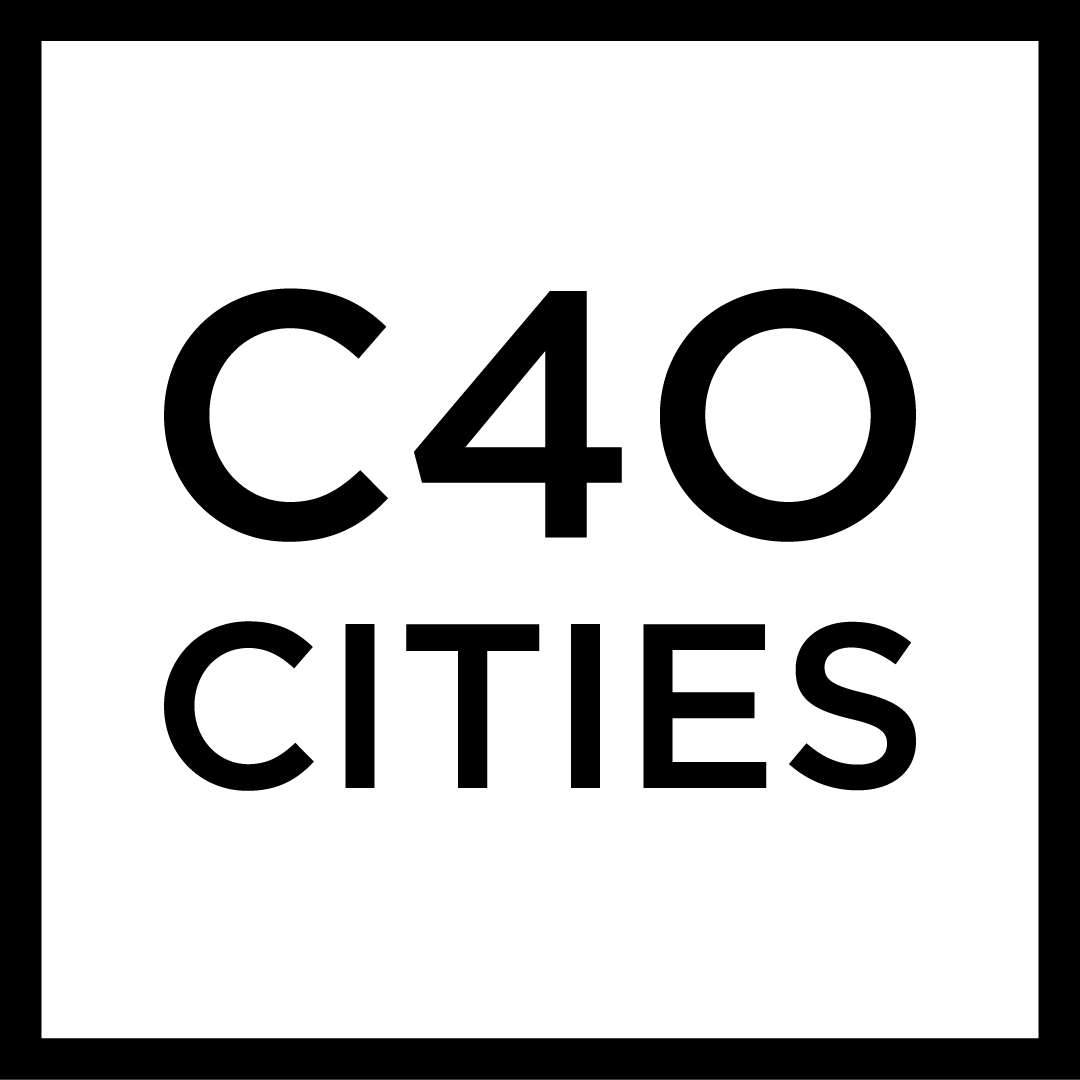
Enhancing the role of
cities as global leaders
The U20 brings together mayors from G20 cities under a common framework and coordinates a joint position to inform the discussions of national leaders. Contributions from the U20 are shared with the G20 Presidency and Heads of State, enhancing the role of cities as global economic and political leaders.
U20 runs parallel to the G20 process and strives to:
1
Propose joint solutions to enhance climate action and sustainable economic development by presenting a communique which leverages existing G20 policy recommendations and international frameworks as well as recommendations from cities.
3
Enrich the G20 agenda by exploring synergies and contributing the unique perspectives and good practices from cities.
2
Invite G20 members to include in each annual discussion strategic or urgent urban subjects that require synergistic solutions with national governments from the short to the long term
4
The U20 focuses on:
Climate change and sustainable development, including socio-economic issues at the nexus of the Sustainable Development Goals.
Cities’ cross-cutting challenge
of access to finance.
Every year, the U20 considers the relationship between these areas and the G20 priorities, and contributes to the process and policy priorities identified by the U20 chair.
Participants
The U20 brings together a group of Participating Cities. These cities are important economic or population hubs, made up of major C40 and UCLG member cities from G20 countries. During the process, each Participating City is represented by its Mayor and a ‘City Sherpa’). The U20 also invites G20 and non-G20 capital cities and intermediary cities as Observer Cities represented by their Mayors, and works with other organisations as U20 partners.

The U20 governance structure is organized by

Cities
U20 is an initiative created and led by cities to bring the urban voice to the G20. ‘Participating Cities’ shape the U20 process by contributing to the development of the U20 Communique and recommendations. Additional cities, such as cities located in the G20 Host country or neighbouring regions, may be invited to attend select U20 events in an observer capacity. Their participation is voluntary, non-binding and revised on a yearly basis.

Executive team
Composed of a U20 Chair that rotates on a yearly basis (usually located in a city of the country presiding the G20 that year), and the Conveners.

Partners
Partners support the U20 process with knowledge based contributions and evidence based research to support cities in taking an informed position on the various U20 topics that are discussed during a cycle.
Conveners

C40 Cities
C40 connects 96 of the world’s largest and most influential cities, representing 700+ million citizens and one quarter of the global economy. Member cities use a science-based approach and exchange of best practices to take the urgent and effective action needed to confront the climate crisis and keep global heating below 1.5°C, aiming to collectively halve greenhouse gas emissions by 2030. C40 mayors are committed to increasing resilience, cleaning the air we breathe and taking inclusive climate action to create a healthier and more sustainable future.

United Cities and Local Governments (UCLG)
UCLG is the world organization of local and regional governments and their associations, representing and defending their interests on the world stage. UCLG’s network represents 70% of the world’s total population and is present in all world regions. UCLG’s key areas of political interest are: local democracy, the achievement of the Sustainable Development Goals, local finance, urban development and city diplomacy in peace building.

Urban 20 in the G20 ecosystem
The G20 works with a broad range of organisations to provide diverse perspectives on financial and socio-economic challenges. Some of these organisations are gathered in thematic groups referred to as ‘G20 Engagement Groups’. These independent collectives are led by organizations from the host country. Together with organizations from other G20 countries, these groups develop policy recommendations that are formally submitted to G20 leaders for consideration.
Where most engagement groups are independent collectives that are led by organisations from the host country, the U20 acts in the same spirit, but is an independent initiative that is permanently convened by the conveners UCLG and C40.
